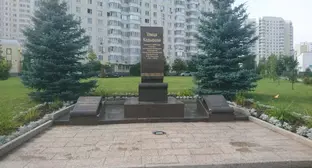21 November 2003, 23:50
Decision of London's court not to extradite Zakayev to have far-reaching consequences
On November 13, Judge of London's Magistrates' Court Timothy Workman read out a court decision on the bid by the Russian Federation for the extradition of Akhmed Zakayev. The decision was negative - after the court hearings, which have lasted for almost six months with some breaks, the court decided not to extradite Zakayev.
But the court has advanced much farther for these six months. Materials produced by the Russian Prosecutor's Office were such as it was necessary to study the context, namely the situation in Chechnya and in Russia as a whole, even if not to consider the merits of the indictments brought against Zakayev. It resulted in the court decision which became the first one beyond the bounds of Russia touching upon the most important aspects of the present situation in the country and holding some ascertainings.
The war, but not the "counter-terrorist" operation, is being conducted in the Northern Caucasus. Torture is employed during inquests; and formally abolished capital punishment is quite adequately replaced with death during a "forced interrogation" or in detention. All this is aggravated by the practice of ethnic discrimination used towards the Chechens. Actions of the Prosecutor's Office have political motives. It does not scruple to falsify materials, and even more so to use evidence given under torture. This ascertaining is especially pertinent now when the energies of the Prosecutor's Office are concentrated on the case of Yukos and Mikhail Khodorkovsky.
The decision read out by Timothy Workman is another small victory of law. Witnesses who testified in London: Andrey Babitsky, Yuli Ribakov, Sergey Kovalyov, and Aleksandr Cherkasov (Sergey Kovalyov is chairman and Aleksandr Cherkasov is a member of the Memorial Society; besides, the Human Rights Center delivered a lot of materials to the court) can congratulated themselves and all their fellow countrymen on it now.
The document speaks for itself, though. There is no escape from appreciating this court decision. Under conditions of the case law working in the United Kingdom, this document has a promising future.
Source: Memorial Human Rights Center (Moscow, Russia)




